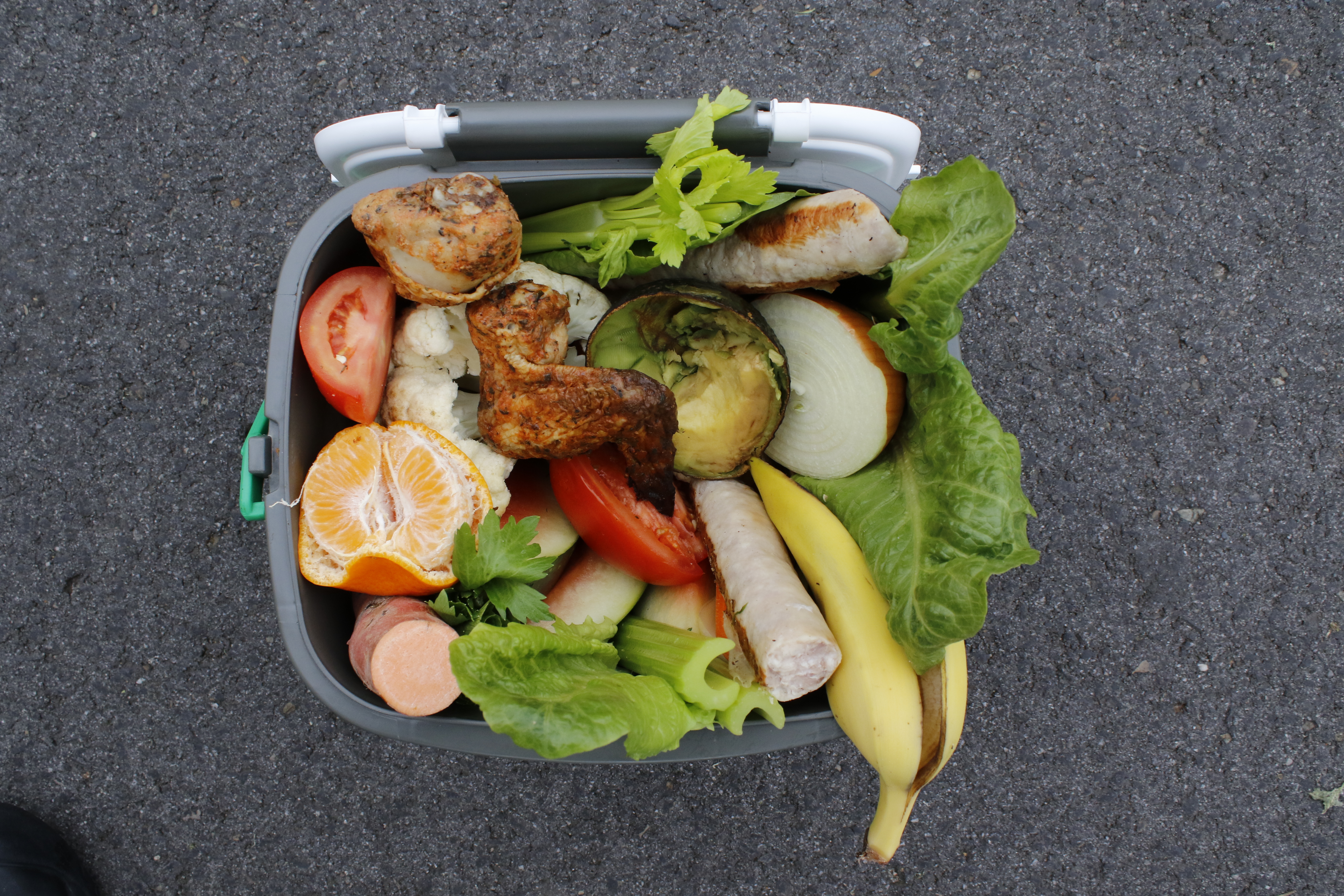Frankston City Council offers its residential households a Food and Garden Waste Collection Service (green lidded FOGO Bin). This service helps reduce the amount of food waste sent to landfill.
When food waste goes to landfill, it makes methane gas, which is much worse for the environment than carbon dioxide.
Instead, Food Organics and Garden Organics (FOGO) put in your FOGO bin is turned into nutrient-rich compost. This compost is used by farmers and gardeners across Victoria to grow more food and plants.
That’s why it’s really important to only put food scraps and garden waste in your FOGO bin. What you put in the bin helps make the soil that grows your food!

Our green lidded FOGO bin service is collected fortnightly and is an optional 'user pays' service.
As part of the FOGO bin service a free caddy and 6 months' supply of liners will be delivered with your new FOGO bin.
Order a food and garden waste bin online via Order a new or additional waste service - Frankston City Council
Call us on 1300 322 322 to request a bin.
A kitchen caddy is a container that makes it easy to collect food scraps while you’re cooking in the kitchen. You can then tip the scraps into your green-lidded FOGO bin. You can use the Council kitchen caddy or use any container you like.
When you first order a FOGO bin, a kitchen caddy and liners will be delivered with your green-lidded bin.
If you already have a FOGO bin but didn’t get a caddy, you can collect one. You can get a free kitchen caddy and a roll of 75 compostable liners. This is enough liners to last about 6 months if you change them every 2–3 days. You can pick up a new roll of liners every 6 months.
You can also use 1-2 sheets of paper towel or newspaper to line your caddy if you prefer, rather than compostable liners.
You can pick up your caddy and liners from:
Make sure to bring proof that you are a resident of Frankston Council, like a rates notice or your driver’s licence. (Limit of one roll of compostable liners per household each six months and subject to availability).
Do not put plastic bags in your food and garden waste bins. Plastic bags can contaminate the soil that grows our food.
The preferred compostable liners are available from Council, free of charge.
If you choose to buy your own liners, you must ensure they are 100% corn starch compostable liners and certified compostable to standard AS4736.
Yes
|
No
|
| Fruit, citrus and vegetables |
Plastic (including any kind of bio-degradable/degradable) |
| Meat scraps and bones |
Glass or metal |
| Dairy products |
Nappies or baby wipes |
| Seafood |
Vacuum dust |
| Tea leaves and coffee grounds |
Animal droppings |
| Egg shells |
Cling wrap, aluminium foil or baking paper |
| Food leftovers and scraps |
Cigarette butts or ashes |
| Cakes and desserts |
Dishcloths |
| Bread |
Coffee pods |
| Used paper towels, tissues and napkins |
Coffee cups (including compostable) |
| Grass clippings, weeds, tree clippings |
Cutlery (including compostable or bio-degradable) |
| Pasta, cereal and rice |
Food scraps that are wrapped or packaged |
FOGO bins are collected fortnightly, on alternate weeks of your yellow lidded mixed recycling bin.
Visit our bin collections page to find your next collection day.
When your FOGO waste (food and garden waste) is collected, it goes to a special place to be turned into compost.
Before this can happen, workers sort through the waste by hand to take out anything that doesn’t belong. Then the correct waste is shredded and processed in a way that helps it break down faster.
The compost that’s made is used by Victorian farmers and gardeners.
That’s why it’s really important to only put food scraps and garden waste in your FOGO bin. If the wrong things go in, it makes the job harder and can ruin the compost.
Take a look at how your FOGO is processed:
Get to know your FOGO bin service better with some of these frequently asked questions, which includes some tips and tricks!
Our FOGO bin service complements a home compost or worm farm because you can put food scraps into the FOGO bin that traditionally aren’t placed into a home compost or worm farm, like meats & bones, onions, citrus or dairy products.
Find out about our home compost rebate program here: Home Compost Rebate Program